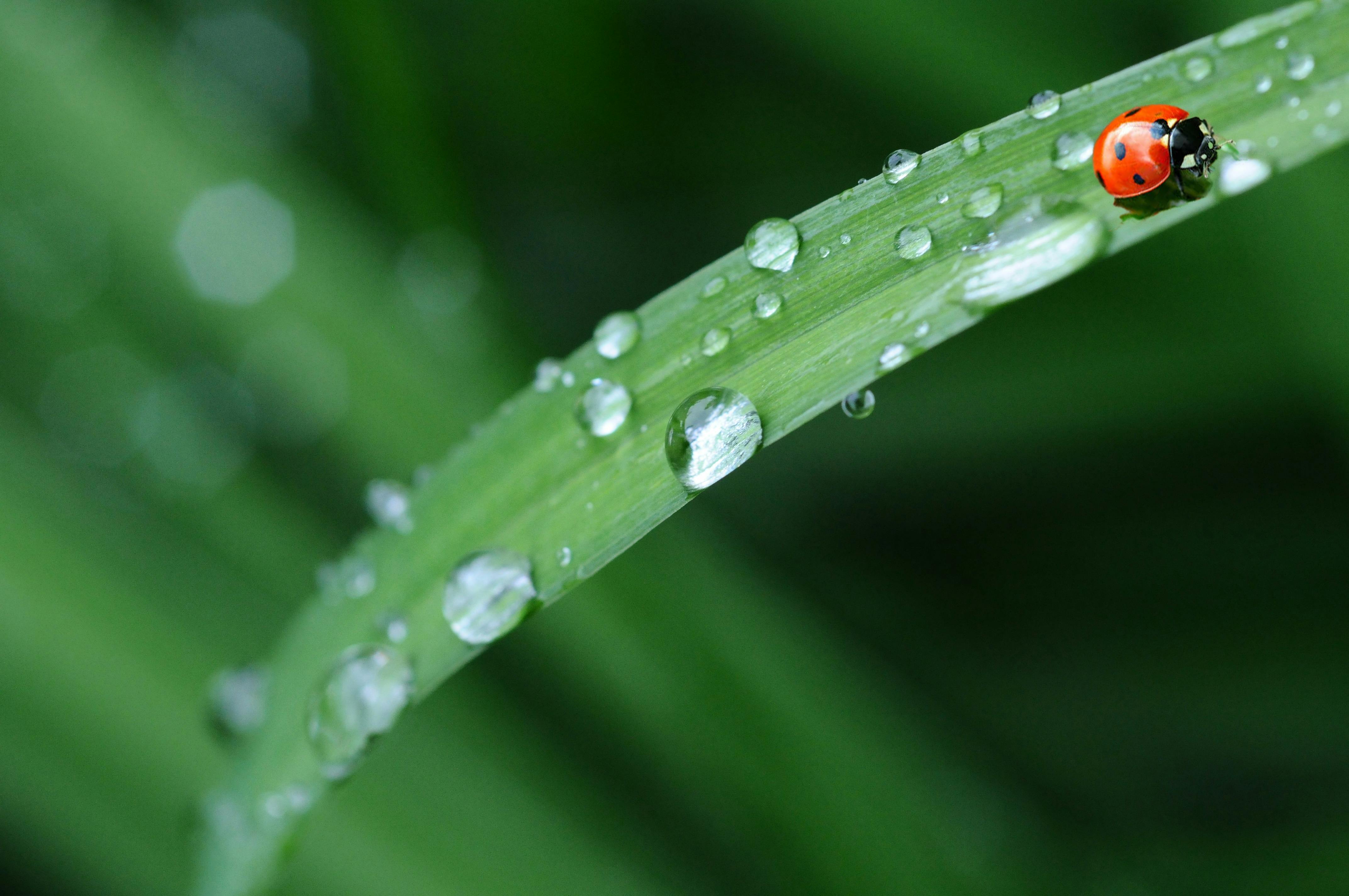Spring water and distilled water are both sources of clean drinking water, but they differ in terms of their source and production process. Spring water is collected from an underground source, usually a spring or aquifer. It can contain minerals and other natural elements, depending on the source. Distilled water is produced by boiling it to evaporate the liquid and then condensing it back into a liquid form. This process removes any minerals or impurities that may be present in the original source of the water.Distilled water is water that has been boiled and evaporated and then condensed back into liquid form. It has had almost all of its impurities removed, including minerals and bacteria, through a process called distillation. Distilled water is often used for drinking, medical purposes, automotive use, and in the production of some products.
What is Spring Water?
Spring water is a type of naturally-occurring water that comes from an underground aquifer. It is formed when rainwater or snowmelt seeps through the ground and collects in an underground layer of rock or soil. The water then flows back up to the surface and is collected for use. Spring water is typically considered to be some of the purest and most natural drinking water available, as it has not been exposed to any contaminants or chemicals. In many cases, spring water will contain beneficial minerals that can enhance its flavor and give it health benefits. It is also typically free of chlorine, fluoride, and other added chemicals that are often found in tap water. Spring water can be bottled and purchased at supermarkets or health food stores, or it can be collected directly from its natural source.
Is Spring Water Safe to Drink?
Spring water is often considered a healthier and more natural alternative to tap or bottled water. Generally, spring water is safe to drink and can be used for cooking and drinking. It is also suitable for making coffee, tea, and other beverages. Spring water is naturally filtered through the ground, which removes many impurities, such as chlorine and other chemicals.
When it comes to drinking spring water, there are a few considerations you should keep in mind. The most important factor is the source of the spring water. Make sure you know where the spring is located and how it’s being collected. It’s also important to check for any contaminants that may be present in the spring’s environment, such as agricultural runoff or industrial waste.
The other factor to consider is the mineral content of the spring water. Some springs may have higher concentrations of certain minerals than others, which can affect flavor and nutrition. If you’re concerned about mineral content in your drinking water, you may want to look for a source with lower levels of certain minerals.
It’s also important to note that some companies may sell bottled spring water that has been treated with chemicals or additives for improved taste or safety reasons. Be sure to read labels carefully before purchasing any type of bottled water. In addition, if you plan on using spring water for cooking or drinking regularly, it’s best to research local sources of clean and safe spring water first before consuming it on a regular basis.
Spring and Distilled Water Difference
Spring water and distilled water are two types of water that are commonly used for drinking, cooking, and other uses. While both types of water are free from many contaminants, there are some key differences between the two. Spring water is collected from an underground source such as a natural underground aquifer or spring. It is then filtered to remove any potential contaminants like bacteria or sediment. Distilled water, on the other hand, is made by boiling the water and then collecting the steam that condenses back into liquid form. This process removes impurities like heavy metals, salts, minerals, and other dissolved solids.
The main difference between spring and distilled water is their mineral content. Spring water often contains some dissolved minerals like calcium, magnesium, potassium, sodium, and bicarbonate which can provide health benefits. Distilled water is almost completely free of these minerals as they are removed during the distillation process. As a result of this difference in mineral content spring water has a slightly higher pH than distilled water which can affect its taste.
In addition to their mineral content spring and distilled waters also differ in terms of their safety for drinking and other uses. Spring waters are often tested for contaminants before being bottled for drinking but still may contain some microorganisms or chemicals that could be harmful if consumed over time. Distilled waters on the other hand have been boiled and condensed eliminating most microorganisms making them generally safe to drink without additional treatment.
In conclusion spring and distilled waters differ in terms of their mineral content and safety for drinking or cooking purposes. While both types of waters may be suitable for different applications depending on your needs it’s important to understand the differences between them before choosing one over the other.
Does Spring Water Contain Minerals?
Yes, spring water does contain minerals. The minerals that spring water contains depend on the location and source of the spring, but typically the water contains calcium, magnesium, potassium, sodium, and chloride in varying amounts. Additionally, many springs contain trace elements such as iron and manganese.
The minerals found in spring water can have beneficial effects on health. Calcium is essential for bone health and magnesium helps regulate blood pressure and muscle function. Potassium aids in metabolism and electrolyte balance while sodium helps with hydration. Chloride assists with balancing electrolytes in the body and helps maintain blood pressure.
The mineral content of spring water can also affect its taste. For example, calcium and magnesium can give water a slightly salty taste while iron can give it a metallic taste. In general, however, spring water has a milder taste than other types of bottled water because it is naturally filtered through rocks or soil before it reaches the surface.
Spring water is often considered to be one of the purest sources of drinking water available due to its natural filtering process as well as its mineral content. It is also typically free from contaminants like chlorine or fluoride which may be present in tap or filtered drinking water.
Overall, spring water contains minerals that are beneficial to health as well as having a milder taste than other types of bottled waters due to its natural filtering process.

Spring Water Purified or Filtered?
Spring water is a naturally occurring type of water that comes from an underground aquifer. It is typically sourced from a natural spring, which is an opening in the earth’s surface through which ground water flows naturally. Spring water is known for its clean, refreshing taste and purity, as it has been filtered naturally by the earth’s layers of rocks and sand.
When it comes to whether spring water has been purified or filtered, it depends on the source. Many spring water sources are tested regularly for purity, and the water may go through some level of purification or filtration before being bottled and sold. This is done to ensure that the water meets certain standards for safety and quality.
Some companies bottle spring water straight from the source without any additional treatment. In this case, they usually must meet certain requirements set by regulatory agencies in order to be considered safe for drinking. This means that while spring water may not be purified or filtered in the traditional sense, it still undergoes some level of testing to ensure its safety and quality.
In general, spring water can be considered both purified and filtered since it goes through some level of processing before being bottled for sale. It is important to know exactly where your spring water comes from and what processes have been used to treat it before making a purchase. That way you can rest assured that your spring water is safe to drink and of good quality.
Does Spring Water Contain Chlorine?
The answer to this question can vary depending on the source of the spring water. Generally, spring water does not contain chlorine; however, some bottled spring water may contain trace amounts of chlorine. This is due to the water being treated with chlorine during the bottling process in order to ensure that it is safe for consumption.
If you are purchasing spring water from a natural source, such as a mountain stream or a well, then it is likely that the water does not contain any chlorine. This is because natural sources of spring water are usually not treated with chemicals before they are consumed.
However, if you are purchasing bottled spring water from a store or other commercial source, then it is possible that the water may contain trace amounts of chlorine. This is because most commercial sources of bottled spring water are treated with chemicals before they are sold in order to ensure their safety.
It is important to note that even if the bottled spring water contains trace amounts of chlorine, it should still be safe for consumption as long as it has been properly treated and stored according to manufacturer guidelines. However, if you have any concerns about the safety of your bottled spring water, it is recommended that you contact the manufacturer for more information before consuming it.
Does Distilled Water Contain Minerals?
Distilled water is water that has been boiled and then condensed back into liquid form. During this process, all of the minerals and other impurities are left behind, resulting in a pure form of water. This is why many people choose to drink distilled water, as it provides a clean, healthy alternative to tap water. But does distilled water contain any minerals at all?
The short answer is no: distilled water does not contain any minerals. It is essentially “dead” water, meaning that all of the minerals have been removed by the distillation process. While this lack of minerals may be beneficial for some people, it can also lead to mineral deficiencies if consumed exclusively over a long period of time. Additionally, because there are no minerals in distilled water, it can be acidic and therefore corrosive to some materials.
However, just because distilled water lacks minerals doesn’t mean that you won’t get any from drinking it. Many bottled waters contain additional minerals such as calcium and magnesium which have been added back in after the distillation process. These waters still provide the benefits of being free from contaminants but with the added bonus of providing essential nutrients as well.
In conclusion, while distilled water does not contain any naturally-occurring minerals or nutrients, it can still provide health benefits when consumed in moderation and when paired with other sources of essential vitamins and minerals.

Conclusion
In conclusion, spring water and distilled water are two different types of water. Spring water is naturally occurring and is collected from underground springs or stream sources. Distilled water is produced through a process of distillation, and it does not contain any minerals or other contaminants. While spring water may be slightly higher in mineral content than distilled water, it is still considered a safe drinking option for human consumption. While both types of water can be used for a variety of purposes, each has its own unique advantages and disadvantages. The choice between the two ultimately depends on the user’s individual needs and preferences.
Ultimately, both spring water and distilled water are safe to drink and can be used in different ways depending on personal preferences. The primary difference between the two is the presence of minerals in spring water while distilled water contains no minerals or contaminants whatsoever. However, both are considered safe to drink and use in various applications.

